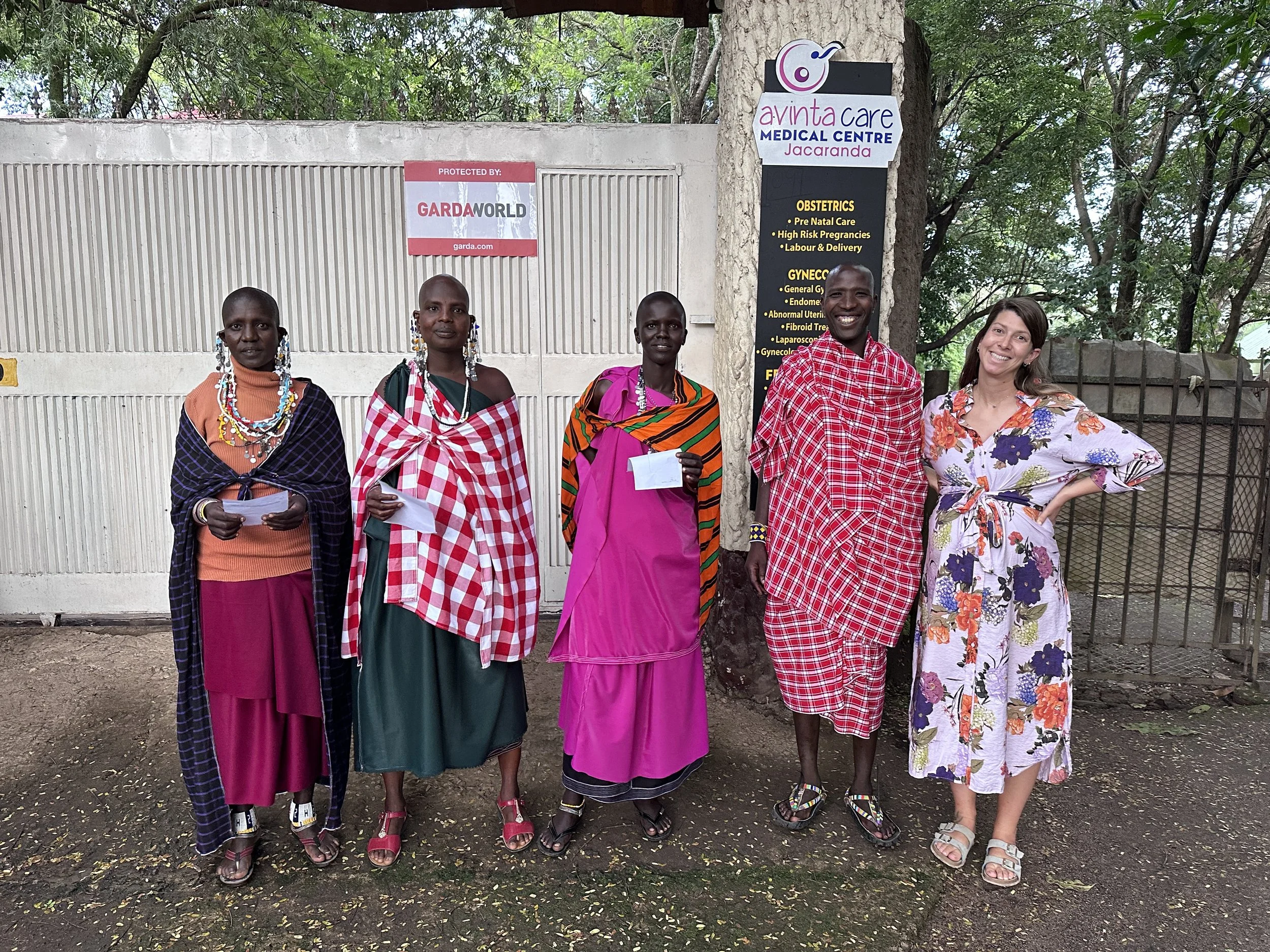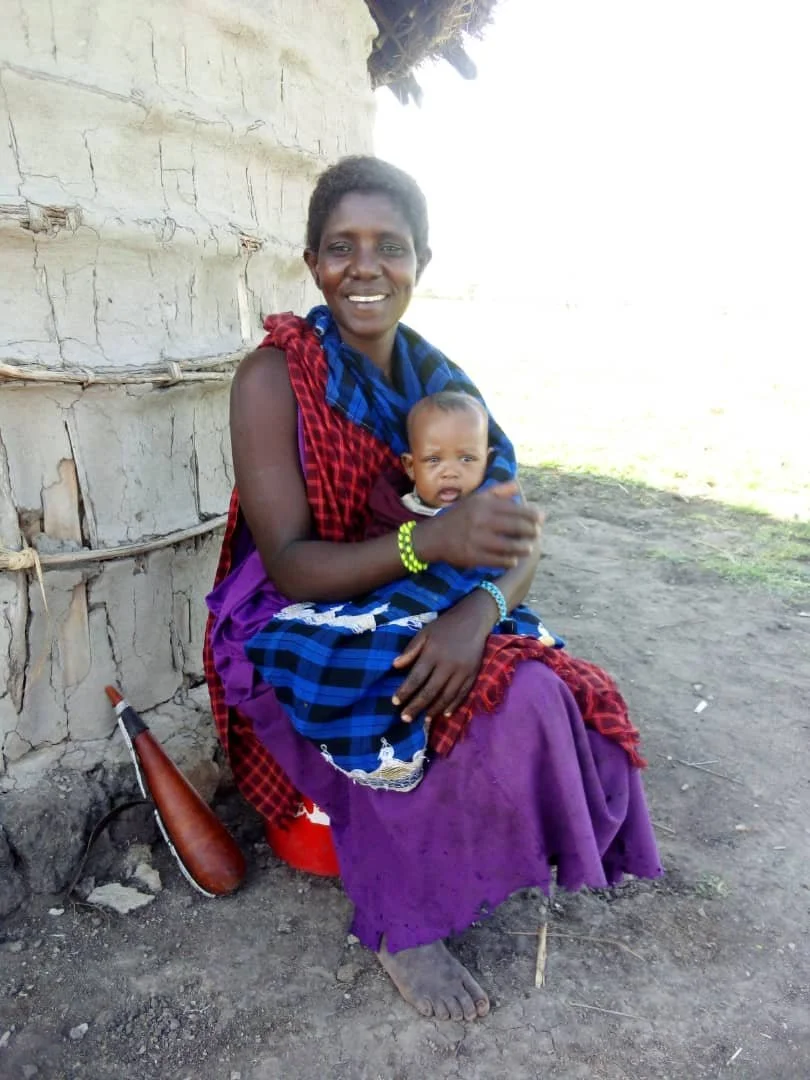Sesilia
Mwandamo Women CIC’s work with the Maasai community in Oltukai Village began with a simple yet profound idea: creating a women’s circle. This circle provided a safe space to discuss topics often shrouded in silence, such as pelvic floor anatomy and menstrual cycle knowledge. These gatherings aimed to empower women with understanding and agency over their own bodies—a vital yet frequently overlooked aspect of health in the community.
After one such circle, Sesilia, a 37-year-old woman, approached Caroline and Hannah. Her pain was evident not only in her words but in the way she carried herself. As she described her severe period pains and years of heartbreak due to recurring miscarriages, her anguish was palpable. Among the Maasai, the inability to carry a child is often surrounded by shame, and Sisilia bore this emotional burden heavily.
Caroline, as a midwife, suspected that Sesilia might be suffering from endometriosis, a condition that’s poorly understood and rarely diagnosed in rural areas like Oltukai. Determined to help, we embarked on a fundraising campaign to bring Sesilia and a few other women with similar symptoms to the Avinta Clinic in Arusha. The journey was not easy, but the support from Mwandamo Women CIC and RAF’s network made it possible.
Sesilia is first on the left. This image was taken on the first visit to Avinta.
At the clinic, after several rounds of testing, Sesilia finally received a diagnosis: endometriosis and bilateral tubal bloackage. The doctors explained that this combined condition had likely caused her repeated miscarriages. They also delivered a painful truth—it was highly unlikely she would ever be able to carry a child to term. However, they mentioned that in-vitro fertilization (IVF) might be an option, though it was expensive and not widely available in Tanzania.
Faced with this reality, Sesilia made a courageous decision. Instead of dwelling on what she could not have, she chose to focus on her health. With medication, her pain significantly reduced, and the knowledge of what was happening in her body brought her much-needed relief from years of stress and uncertainty.
Months later, a miraculous turn of events unfolded. Sesilia’s close friend discovered she was pregnant with her third child. Deeply moved by Sesilia’s journey, she made an extraordinary decision: she declared that this baby would be for Sesilia. In the newly refurbished maternity room in Oltukai—a project completed through the joint efforts of Mwandamo and the Royal African Foundation—Sesilia’s friend gave birth to a healthy baby girl.
When the baby was placed in Sesilia’s arms, she felt an overwhelming sense of healing and love. Years of loss and heartache seemed to melt away as she cradled the newborn. She named the baby girl Paulina, a name she had chosen long ago for the daughter she had wished so hard for.
Sesilia’s journey to motherhood was unconventional and marked by immense challenges, but it ultimately led to a beautiful, happy ending. Her story is a testament to the power of community, resilience, and love, showing that even in the face of despair, hope can be found in the most unexpected ways.
Sesilia and Paulina sitting outside their home.


